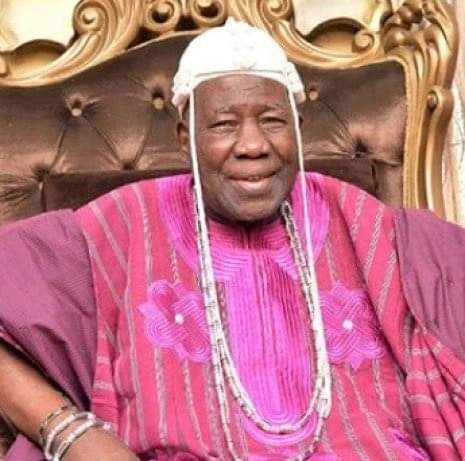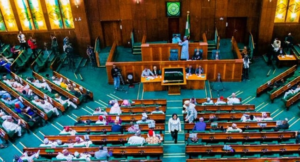
The late Ibadan monarch was described as a master craftsman versed in making both native and English dresses.
No one could have thought that a ‘cut-and-sew’ tailor would be installed, in the 21st Century, as the Olubadan of Ibadan, one of the top royal positions in the South-west region of Nigeria. But Oba Saliu Adetunji achieved the feat when he emerged as the monarch of Ibadan, succeeding late Oba Samuel Odugade, a retired army officer and political elite.
Oba Adetunji, 93, who died on Sunday at the University College Hospital (UCH), Ibadan, after a brief illness, had hustled on the streets of Lagos as a local tailor before becoming a royal majesty.
As a king, he was known for his pan-Yoruba ideologies. He had joined other prominent monarchs in the region to criticise the violent agitation for the self-determination of the Yoruba race.
“Kabiyesi’s exit at this time is painful, to say the least,” the Oyo State Governor, Seyi Makinde, said. “His wealth of experience, his immense wisdom and his commitment to seeing a greater Ibadan and a better Oyo State are unrivalled.”
No Academic Background
Incredibly, the late Olubadan had no educational background; yet, he ruled over the largest city in West Africa, competing with other prominent kings, who have more exposure and academic background in the African continent.
Oba Adetunji was born on August 26, 1928, at the Adetunji Compound, Popoyemoja, Ibadan, to the family of Olayiwola. He initially followed his father’s footsteps into tailoring but moved to the music industry as a promoter before his emergence as a first-class monarch.
“I have no educational certificate and I never attended any school,” he said in an interview with reporters after his inauguration. “My job experience with some white men gave me the opportunity to learn their language by relationship.”
From Tailoring To Musical Merchant
The late Ibadan monarch was described as a master craftsman versed in making both native and English dresses. He had learned the art of tailoring from a prominent tailor in Ibadan, Disu Igbalajobi, before migrating to Lagos in 1949.
He worked as a fashion designer in the Agarawu area of Lagos for a number of years until he met an iconic music producer, Badejo Okunsanya, who brought him to the music industry. He marketed musical records produced by Okunsanya’s customers and later started his first record label, Baba Laje Records in 1957.
“The first Nigerian to have a record label, the late Badejo Okusanya, who owns Badejo Sound Studio, baptised me into the world of the music business,” the monarch said in an interview with Guardian newspaper. “He was my boss because he was responsible for my eventual transformation from tailoring business to the music industry.”
He was said to have promoted successful and popular Fuji musicians such as Wasiu Ayinde Marshall, Salami Balogun, Amoda Shijuade, Daudu Epo Akara, Saka Olayigbade, and many more, according to the Guardian.
From Chieftaincy To Royalty
The sudden demise of two Ibadan high-ranking chiefs in 2015 “altered the well-arranged traditional structure of ascendancy to the throne of Olubadan”, fast-tracking the emergence of Oba Adetunji as the king in 2016.
In 1976, he became the Mogaji of the Adetunji family, three years after he was first summoned to do so. The late Balogun Olubadan, Sulaiman Omiyale, had pressured him to become the Mogaji of his family, after convincing him that taking the chieftaincy role would not affect his booming business in Lagos.
“Since 1976, I have continued to progress steadily on the Balogun chieftaincy line, climbing the 23 steps according to the tradition of Ibadan chieftaincy, till Allah granted me the grace to become Olubadan today,” he had told reporters in Ibadan.
But, as fate would have it in 2015, the highest-ranking high chief in the Otun Olubadan chieftaincy line, Omowale Kuye, died two weeks after the demise of another high chief, Balogun of Ibadan land, Sulaimon Omiyale. The duo were qualified to be the next Olubadan, considering the royal succession system of the ancient city.
It was gathered the system that would produce the next Olubadan is a system in which members of certain households graduate through stages to mount the throne of their forefathers.
That same system made Mr Adetunji the next Balogun of Ibadan, following the demise of the two high-ranking chiefs in 2015.
Thus, in 2016, Oba Adetunji became an unopposed candidate for the throne of Olubadan when his predecessor, Oba Odugade, joined his ancestors.
Traditional enthusiasts believed destiny was on the side of Mr Adetunji, having jumped the queue of succession to become the king of the land.
‘Remove Your Illegal Crowns’
In 2017, the late Olubadan critised the elevation and installation of some baales (local chiefs) as Obas in the city, ordering them “to remove your illegal crowns”.
Former Governor of Oyo State, Abiola Ajimobi, had ordered the crowning of two new kings, seemingly eroding the status of the Olubadan.
The Olubadan had shunned the coronation of the new monarchs, causing controversies and division within the Olubadan chieftaincy.
The Ibadan council of Obas on December 12, 2017, issued a 21-day ultimatum to Oba Adetunji, to conduct his activities according to provisions of the olubadan chieftaincy review or get a vote of no confidence.
The council of elders accused the Olubadan of inciting people against the then Oyo governor, who had undertaken the review that made him an imperial majesty.
“We are, by this conference, giving His Imperial Majesty a 21-day ultimatum to change his stand and work for the improvement of Ibadan, rather than promoting disorderliness,” Lekan Balogun, most senior chief to the Olubadan, had said. “Failure to do so, the entire Ibadan council of obas will pass a vote of no confidence in the imperial majesty, oba Saliu Adetunji, and declare him persona non-grata, and the government will have no other choice than to move for appropriate action.”
He also said: “You need to know that we the then Olubadan-In-Council nominated and appointed him and presented the said Kabiyesi Adetunji to the government of Oyo state for inauguration and approval or confirmation as the olubadan of Ibadan, knowing well that under the law, anybody from the position of Ekerin is qualified for the position of the olubadan.”
However, Oba Adetunji was vindicated in 2018 when Justice Olajumoke Aiki of the Oyo State High Court nullified the installation of the 21 monarchs in Ibadan by former Governor Ajimobi.
The judge described the installation as “unconstitutional, illegal, null, void and of no effect”, following a legal challenge by Rashidi Ladoja, a former Governor.








